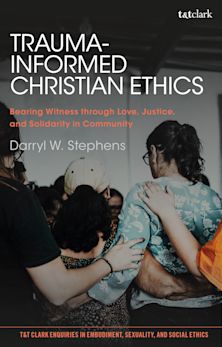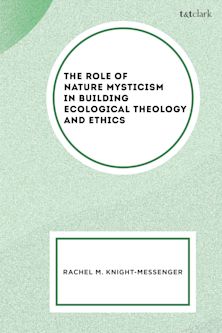- Home
- ACADEMIC
- Theology
- Theological Ethics
- God, Race, and History
You must sign in to add this item to your wishlist. Please sign in or create an account
Description
In crafting racial visions of the modern world, European thinkers appropriated the Christian doctrine of providence, constructing the idea of European humanity’s rule over the globe on the model of God’s rule over the universe. As a powerful ordering theory of the relationship between God and creation, time and space, self and other, the doctrine served as an intellectual framework for the theorization of whiteness, as the male European subject replaced Jesus Christ as the human being at the center of world history. Through an analysis of the work of G.W.F. Hegel, Karl Barth, and James H. Cone, God, Race, and History examines this subversion of the Christian doctrine of providence, as well as subsequent attempts within modern Protestant theology to liberate the doctrine from its captivity to whiteness. It then develops a constructive political theology of providence in conversation with Delores S. Williams and M. Shawn Copeland, discerning Jesus Christ at work through the Holy Spirit in the struggles of ordinary, overlooked, and oppressed human creatures to survive and to carve out a flourishing life for themselves, their communities, and their world.
Table of Contents
Abbreviations
Introduction
Chapter 1 The Problem of Providence in Contemporary Theology: From Recovery to Liberation
Chapter 2 G. W. F. Hegel: Providence in Time, Space, and Race
Chapter 3 Karl Barth: Providence Between East and West
Chapter 4 James H. Cone: Providence as the Cities Burned
Chapter 5 Liberating Providence: The Spirit, Christ's Presence, and Creaturely Participation
Conclusion
Bibliography
About the Author
Product details
| Published | 05 Feb 2021 |
|---|---|
| Format | Ebook (PDF) |
| Edition | 1st |
| Extent | 224 |
| ISBN | 9781978782068 |
| Imprint | Lexington Books |
| Publisher | Bloomsbury Publishing |
About the contributors
Reviews
-
Jantzen’s careful work is a model for how theological recovery can be liberating: by joining theologians of the past in the ongoing work of discerning God’s action in the past and present.
Reformed Journal
-
In God, Race, and History, Matt R. Jantzen capably explores these two faces of providence, analyzing both how the doctrine has been deployed to support colonialism and racism, and how it can be reclaimed to counter the same.
International Journal of Systematic Theology
-
Here lies the real strength of God, Race, and History: it prompts one to pause and consider precisely how best to frame God’s providential actions in the world, and thus to consider the impact of one’s own decisions and actions in response.
International Journal of Systematic Theology
-
God, Race, and History makes a genuinely novel, and much needed, contribution. This is a creative and worthwhile study that reenergizes and perhaps saves the Reformed doctrine of Providence from the scrapheap of history.
Rubén Rosario Rodríguez, Saint Louis University
-
Matt Jantzen not only provides a fresh reading of Barth he makes possible an account of providence that has been absent in much of modern theology. Hopefully, this book will attract a wide readership for no other reason than this is what theological work should look like. Theologians may actually have something to say about the way things are.
Stanley Hauerwas, Duke University Divinity School
-
Where is the Spirit working in the world today? With clarity and thoughtfulness, Matt Jantzen explores how three outstanding thinkers—Hegel, Barth, and Cone—have answered this question. Carefully recovering their insights as well as drawing attention to their blind spots, Jantzen leads the reader to his own constructive proposal: that attending to divine providence today requires attunement to how 'the Spirit is giving life to ordinary, overlooked, and oppressed bodies.' Jantzen’s book is an important read for scholars in systematic theology and political theology.
Vincent Lloyd, Villanova University

ONLINE RESOURCES
Bloomsbury Collections
This book is available on Bloomsbury Collections where your library has access.



































